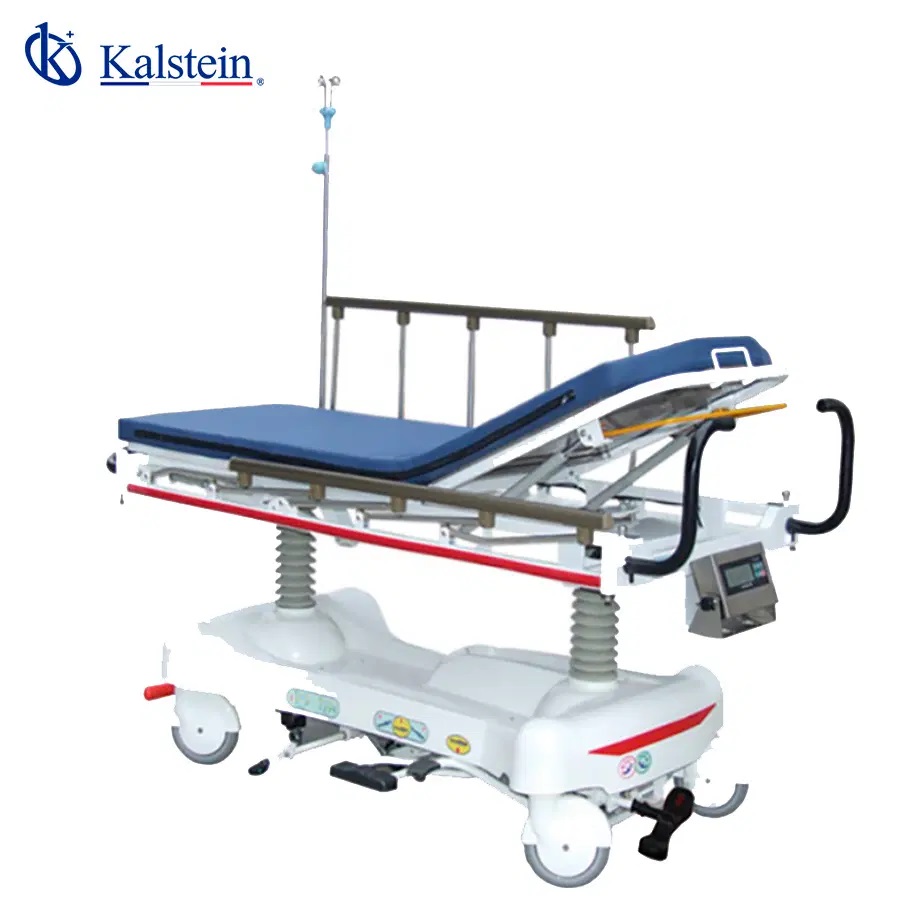In the medical field, transfer stretchers are essential for ensuring the safety and comfort of patients during transport. This article will explore the benefits, unique features, and how these stretchers address specific problems for users.
By the end of this text, readers should understand the importance of investing in high-quality stretchers and how these medical innovations can significantly improve patient experience and the efficiency of medical staff.
Benefits of Medical Transfer Stretchers
Medical transfer stretchers offer numerous benefits for both patients and healthcare professionals. Firstly, they provide a stable and comfortable platform that minimizes patient movement during transfer. This is crucial for patients with injuries or conditions that could worsen with sudden movements. The stability also facilitates the work of medical staff, allowing them to focus on patient care without worrying about the safety of the transfer.
Moreover, these stretchers are designed to be ergonomic and easy to maneuver. This not only reduces the physical strain on medical staff but also speeds up the transfer process, enabling quicker responses in emergency situations. In summary, medical transfer stretchers combine comfort, safety, and efficiency, enhancing the quality of care at every stage of the process.
Unique Features of Transfer Stretchers
Modern medical transfer stretchers come equipped with a series of unique features that set them apart from older or basic models. One of the most notable features is the adjustable height and angle capability, which allows the stretcher to be adapted to different clinical needs and facilitates the transfer of the patient from other surfaces, such as beds or wheelchairs.
Another innovative feature is the inclusion of centralized braking systems, which secure the stretcher in place during transfer, preventing unwanted movements that could compromise patient safety. Additionally, many stretchers now come with cushioning systems that absorb impacts during movement, providing a smoother and more comfortable transfer for the patient.
How They Solve Specific Problems for Users
Medical transfer stretchers are designed to solve specific problems faced by both patients and medical staff. One of the most common issues is the difficulty in transferring patients with reduced mobility or severe injuries. Modern stretchers, with their adjustable and ergonomic design, make these transfers easier, reducing the risk of further injury to both the patient and staff.
Another critical problem is the need for quick and safe transfer in emergency situations. High-quality stretchers are designed to be fast and easy to handle, enabling efficient patient transport without compromising their safety. These medical innovations not only improve the patient experience but also enhance operational efficiency in clinical settings.
Medical Innovation in Stretcher Design
Medical innovation plays a crucial role in the development of medical transfer stretchers. Technological advancements have enabled the creation of lighter and more durable stretchers using materials like aluminum and high-strength alloys. These materials not only improve the maneuverability of the stretchers but also extend their lifespan, offering better cost-benefit ratios in the long term.
Moreover, modern stretchers incorporate advanced technology such as hydraulic and electric systems for height and position adjustments. These innovations allow for greater control and precision during transfer, improving patient comfort and facilitating the work of medical staff. Ongoing medical research ensures that transfer stretchers continue to evolve to meet the increasing demands of healthcare.
The Importance of Medical Research in Stretcher Development
Medical research is fundamental to developing safer and more efficient transfer stretchers. Through clinical studies and field tests, manufacturers can identify areas for improvement and develop innovative solutions that address the specific needs of users. This research includes evaluating ergonomics, material durability, and the effectiveness of incorporated safety systems.
Collaboration with healthcare professionals is also crucial. By involving doctors, nurses, and technicians in the design process, manufacturers can ensure that the stretchers meet clinical standards and user expectations. This synergy between research and clinical practice results in products that not only comply with safety regulations but also enhance the quality of patient care.
Conclusion
Medical transfer stretchers are a fundamental piece of healthcare equipment, providing comfort and safety to patients and facilitating the work of medical staff.
Thanks to constant innovation and medical research, these stretchers continue to evolve to offer increasingly efficient and safe solutions.
Are you yearning for top-tier medical equipment, ready to enhance the efficiency of your laboratory? Visit https://kalstein.pl/category-product/medical-line/medical-transfer-stretcher/ to explore our high-end catalog, packed with the best finds at the most competitive prices. Excellence marks our brand, we innovate and manufacture high-precision equipment, both reliable and durable to meet your needs. Why wait? Make your quick and secure online purchase, take the leap towards the future of medical technology today. https://kalstein.pl/

